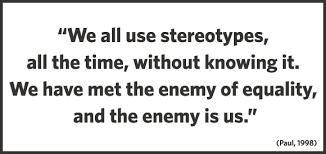The racism, discrimination, and pain the Native People in Canada have to face is utterly horrendous. We, as Canadians, have treated them terribly since the day we sailed onto their land hundreds of years ago. The ongoing problem is so complex that finding a clear-cut solution is a daunting task. It is important to understand where the inequalities take place and what is actually happening to our Native People so we can create a better Canada, one where all of its people are treated with the respect, politeness, and understanding we propagate to the rest of the world.
In almost every aspect of the Canadian life Aboriginals are receiving the short end of the stick. They live in poverty, have higher health risks and are susceptible to more diseases, face employment barriers outside of reserves, have lower success rates in school, receive harsher jail sentences, and face systemic racism and stereotypes wherever they go. The statistics are jaw dropping when it comes to comparing their living circumstances and the average Canadian.
Check out this Prezi:
See the Statistics!
 |
| House in the Kashechewan reserve in Northern Ontario Source: Google images |
|
One major problem that Aboriginals face is the living conditions on the Native reserves throughout Canada. These reserves had no proper planning or infrastructure when they were set up and lack any economy in themselves. Because of this, many Natives died early on from lack of shelter, food, health care, and money. They had no means to be self-sufficient and were not allowed to leave the reserves. In the beginning, the government put tight restrictions on relief effort to reserves and the Native people had to suffer alone with no help from NGOs. Nowadays the situation on the reserves has not greatly improved. Because of the isolation of these reserves they have little access to the benefits all other Canadians have access to, like clean running water or heat. For example, they do not have access to health care and in 1999 First Nations people experienced many infectious diseases. ( The tuberculosis rate is 8 to 10 times higher in Aboriginals than in the Canadian population as a whole.) A lot of reserves also do not have easy access to free education for their children. In a 1999 census it was found that only 31% of Aboriginals living on-reserve had a high school education. There are many reasons for this, one being the distance of the school. In an article in the Toronto Star in February it said, "In Thunder Bay, 7 kids have died in the past 10 years while living on their own seeking an education." When children do not have a school in their reserve they are left to find one in a different reserve, often one with unsanitary classrooms and unsafe buildings. (Reports have even found the presence of rodents living in the walls). Many students need to leave families to attend school off-reserve and this causes the whole community to suffer.
Another great issue on reserves is the social problems many Aboriginals face. The suicide rate is more than double on-reserve compared to off-reserve; some reserves have as many as one death a month due to suicide, drug overdose, or alcohol poisoning. Also, violent death is more than triple on reserve, with 75-90% of the women having gone through some sort of battering in their lives. To make matter worse, half of the children have been abused and many grow up as either wards of the state or without their parents present. This is, in part, because of the ongoing problem of alcoholism and the addictive tendencies that run in Aboriginal people. All of these issues are less prevalent in non-aboriginal Canadians.
 |
| source: Google images |
Unfortunately, Aboriginals face just as many problems off-reserve as they do on-reserve. Because of stereotypes and misconceptions they are discriminated against wherever they go in society. A study in 1995 showed that 77% of employers found challenges in hiring and retaining Aboriginal employees. Some of the barriers expressed were communication, culture differences, lack of skills and training, and misconceptions. These stereotypes are worsened by media and the ancient idea that Natives are savages and that they are
all alcoholics and
all lack ambition. Another stereotype is that they are
all criminals. This, unfortunately, holds some truth. Aboriginals represent 3.8% of Canadian population but 18% of federal inmates are Aboriginal. In the prairies they account for 60% of offenders and Aboriginal women represent 30% of the women in federal prisons. These numbers continue to increase and even more so with Aboriginal youth, who are over-represented in youth detention centers. They usually receive longer sentences and at a younger age than non-aboriginals. While in the Criminal system, Aboriginals have less access to programs, have longer waiting times before parole, have harsher penalties, have less access to traditional food, and are discriminated against by officers and lawyers. This systemic racism is going unchecked and unchanged. In 1991 the Royal Commission on Aboriginal Peoples (RCAP) said, "The justice system has failed Aboriginal people."
Adding all of the inequalities together show just how problematic the situation of our Aboriginal people is. How can we call ourselves the best place on earth and tell everyone to admire our community-like spirit when our own Native people are living in squander without the necessities of life. In 2009 the UN human rights watch issued a report that was critical of Canada's protection of aboriginal rights. They gave us 68 recommendations to better their lives, including the need to alleviate homelessness. We are so used to hearing that Canada is awesome that we fail to see what is in our own backyards. These problems are too massive to ignore and we have to do something!
 |
| Wordle by Me |


